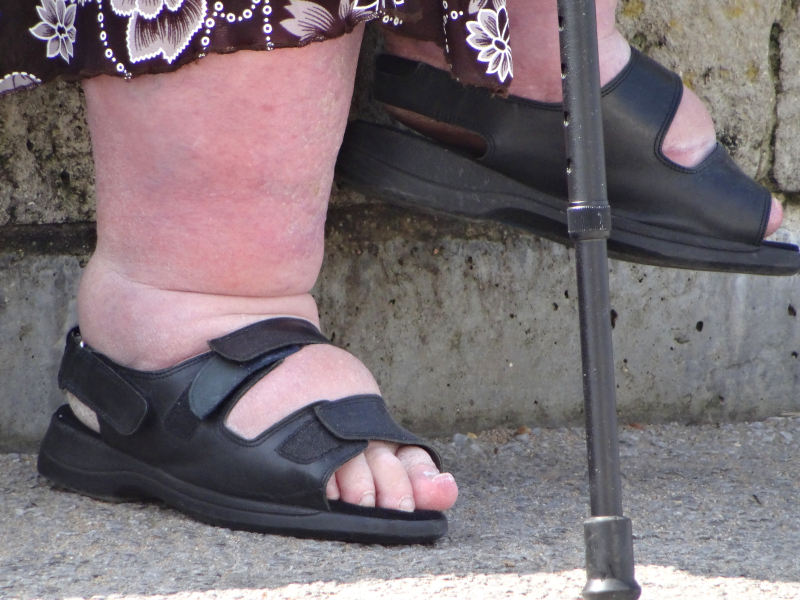Summer heat and humidity can often cause swelling in the hands and feet due to dilation of the blood vessels but in older adults, edema can be a warning sign of something much more serious. Advanced age is just one of many risk factors for edema and if swelling onset is sudden, it can be a sign of a blood clot and it’s it important to seek medical treatment immediately.
Edema, or swelling (usually of the extremities) occurs when blood vessels leak fluid. Mild cases can be caused by sitting in one position too long or having too much salt in the diet. It can also be a side effect of some medications including high blood pressure drugs, anti-inflammatory medications, estrogens and some diabetes drugs.
However, sometimes edema can be a sign of a serious health problem such as congestive heart failure. According to the Mayo Clinic, heart failure can cause blood to back up in the legs, ankles and feet because the heart can no longer effectively pump blood back from the legs. It can also cause shortness of breath and fluid to accumulate in the lungs.
Cirrhosis of the liver can also cause edema, however the fluid build-up is apparent in the abdomen as well as the legs. Kidney disease can allow extra fluid and sodium in the circulatory system, causing swelling of the legs and sometimes around the eyes. Damage to the kidneys can also compromise vessels that filter blood which may lead to a decline in protein levels and edema. Damaged or weakened veins in the leg may allow blood to pool up in the legs and feet and cause edema.
Following cancer treatment, especially surgery, the lymph systems may not be able to clear excess fluid from tissue and cause swelling. If left untreated edema can cause difficulty walking, scarring, decreased circulation, stiffness, may increase the risk for skin ulcers and infections and result in a decrease in the elasticity of arteries, veins, joints and muscles. Scarring between layers of tissues can also occur.
It is important to seek medical attention for edema and although mild edema can usually be treated with dietary changes and elevating the affected limb(s) above the heart, more severe swelling may need to be treated with diuretics which help the body rid itself of excess fluid. Check with your doctor or pharmacist to make sure edema is not one of the side effects of a new medication.
Home Remedies
- Keep moving to pump blood effectively
- Elevate the swollen part of the body
- Massage may help move fluid from affected part of the body
- Compression – compression stockings, sleeves or gloves can help prevent fluid from collecting
- Keep swollen areas clean, dry and moisturized to avoid infection, protect feet with well fitted shoes if they are swollen
- Reduce salt intake
- Maintain a healthy body weight
To learn more about causes and treatment of edema, visit the U.S. National Library of medicine at https://www.nlm.nih.gov/medlineplus/edema.html.






Add Your Voice
0 Comments
Join the Discussion